PM: EU integration one of key priorities
Prime Minister Ivica Dačić said on Wednesday that EU integration had been a key priority for the government since its formation and also after the reshuffle.
Wednesday, 11.09.2013.
12:03

BELGRADE Prime Minister Ivica Dacic said on Wednesday that EU integration had been a key priority for the government since its formation and also after the reshuffle. He added that the government would adopt by the end of the week a set of documents related to the accession talks with the EU. PM: EU integration one of key priorities "The decisions by the EU heads of state back in June to start creating the framework for the accession talks with Serbia and the beginning of the screening process created the conditions needed for accelerated preparations for Serbia's EU accession," he said opening a seminar on the accession talks between Serbia and EU. The government appointed Tanja Miscevic as chief negotiator and adopted a decisions on training the negotiating team, he said, adding that Miscevic had a difficult task ahead of her, running the negotiations, and that she would have support from all the members of the government. The prime minister said that there were political conditions in the process that Serbia had been meeting successfully, adding that the progress made in the dialogue with Pristina would enable the screening in the fields of judiciary and fundamental rights to begin in two weeks from now. "I am sure that further progress in the talks with Pristina and (European foreign policy chief) Catherine Ashton will make it possible to hold the first intergovernmental conference in January, which will kick off the irreversible process of accession officially," Dacic said. The process facing Serbia is difficult and time consuming, and it is vital to have confidence and the ability to implement the commitments taken on, Dacic said. Serbia is not joining the EU for the EU but for its citizens, the prime minister stressed. "We urge you to be bold and to keep in mind our state and national interests in the negotiations," Dacic said at the opening of the seminar organized by the Serbian government's European Integration Office and the German Organization for International Cooperation (GIZ). (Tanjug) "Strategic goal, and reforms" The minister without portfolio in charge of EU integration, Branko Ruzic, said on Wednesday that EU membership was Serbia's strategic goal and would include reforms to adapt the country to EU standards. "That is why it is the ultimate internal political issue," Ruzic said at a seminar on the accession talks between Serbia and the EU held at the Serbian parliament. According to Ruzic, EU membership is a strategic goal, but it should not be forgotten that it is not a goal in itself, but the best means of strengthening Serbia. "It is practically a process of modernizing Serbia and its society," he pointed out. He said that the government and he as its minister would be available to everyone during the process so we could make the future together. Addressing the gathering, Serbia's lead negotiator in the membership talks with the EU Tanja Miscevic said that the seminar had brought together those who knew what to do, who knew how to speak to the EU honestly and openly while keeping in mind never to fail to protect Serbian interests. Miscevic thank all EU member states, particularly Germany, the country's embassy in Belgrade and the German Organization for International Cooperation (GIZ), and also colleagues from Slovenia, who have helped Serbia before as part of their commitment to the EU integration progress, for their technical and political support. Head of the political department of the German Embassy in Belgrade Michael Hasenau said that Germany had been constantly supporting Serbia's reform efforts, assisting the country with EUR 1.5 billion since 2000, the beginning of its transition period. According to Hasenau, the accession process will last for many more years and present a number of challenges, but right now it is important to form structures and framework to facilitate the process. Hasenau said that the seminar should show that Germany wanted it and Serbia to be partners on the road and to reach the goal together. Tanjug
PM: EU integration one of key priorities
"The decisions by the EU heads of state back in June to start creating the framework for the accession talks with Serbia and the beginning of the screening process created the conditions needed for accelerated preparations for Serbia's EU accession," he said opening a seminar on the accession talks between Serbia and EU.The government appointed Tanja Miščević as chief negotiator and adopted a decisions on training the negotiating team, he said, adding that Miscevic had a difficult task ahead of her, running the negotiations, and that she would have support from all the members of the government.
The prime minister said that there were political conditions in the process that Serbia had been meeting successfully, adding that the progress made in the dialogue with Priština would enable the screening in the fields of judiciary and fundamental rights to begin in two weeks from now.
"I am sure that further progress in the talks with Priština and (European foreign policy chief) Catherine Ashton will make it possible to hold the first intergovernmental conference in January, which will kick off the irreversible process of accession officially," Dačić said.
The process facing Serbia is difficult and time consuming, and it is vital to have confidence and the ability to implement the commitments taken on, Dačić said.
Serbia is not joining the EU for the EU but for its citizens, the prime minister stressed.
"We urge you to be bold and to keep in mind our state and national interests in the negotiations," Dačić said at the opening of the seminar organized by the Serbian government's European Integration Office and the German Organization for International Cooperation (GIZ).
"Strategic goal, and reforms"
The minister without portfolio in charge of EU integration, Branko Ružić, said on Wednesday that EU membership was Serbia's strategic goal and would include reforms to adapt the country to EU standards."That is why it is the ultimate internal political issue," Ružić said at a seminar on the accession talks between Serbia and the EU held at the Serbian parliament.
According to Ružić, EU membership is a strategic goal, but it should not be forgotten that it is not a goal in itself, but the best means of strengthening Serbia.
"It is practically a process of modernizing Serbia and its society," he pointed out.
He said that the government and he as its minister would be available to everyone during the process so we could make the future together.
Addressing the gathering, Serbia's lead negotiator in the membership talks with the EU Tanja Miscevic said that the seminar had brought together those who knew what to do, who knew how to speak to the EU honestly and openly while keeping in mind never to fail to protect Serbian interests.
Miscevic thank all EU member states, particularly Germany, the country's embassy in Belgrade and the German Organization for International Cooperation (GIZ), and also colleagues from Slovenia, who have helped Serbia before as part of their commitment to the EU integration progress, for their technical and political support.
Head of the political department of the German Embassy in Belgrade Michael Hasenau said that Germany had been constantly supporting Serbia's reform efforts, assisting the country with EUR 1.5 billion since 2000, the beginning of its transition period.
According to Hasenau, the accession process will last for many more years and present a number of challenges, but right now it is important to form structures and framework to facilitate the process.
Hasenau said that the seminar should show that Germany wanted it and Serbia to be partners on the road and to reach the goal together.











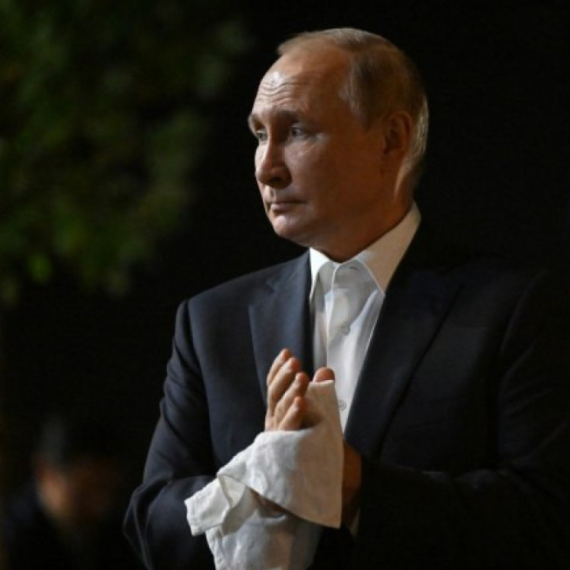
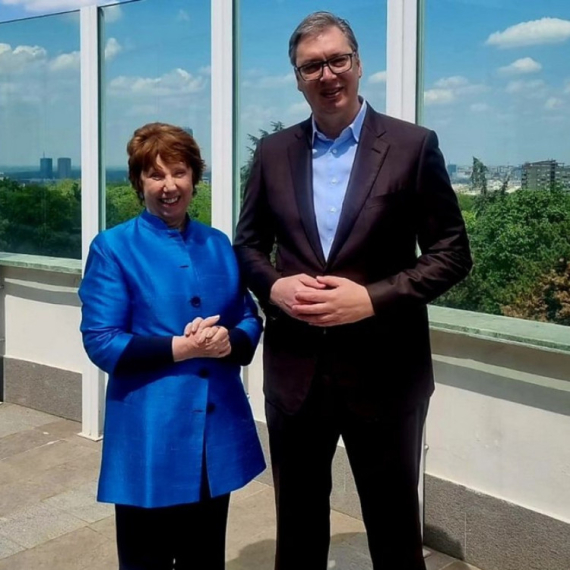
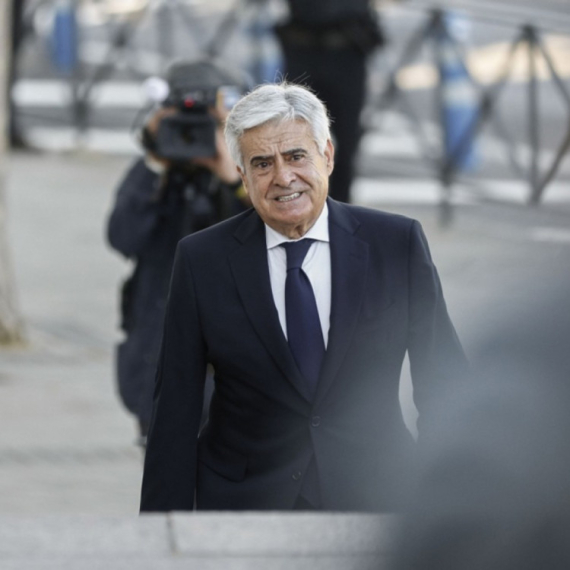


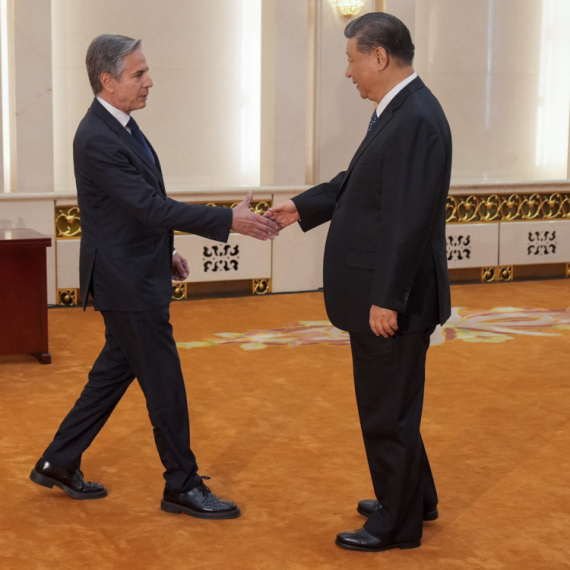
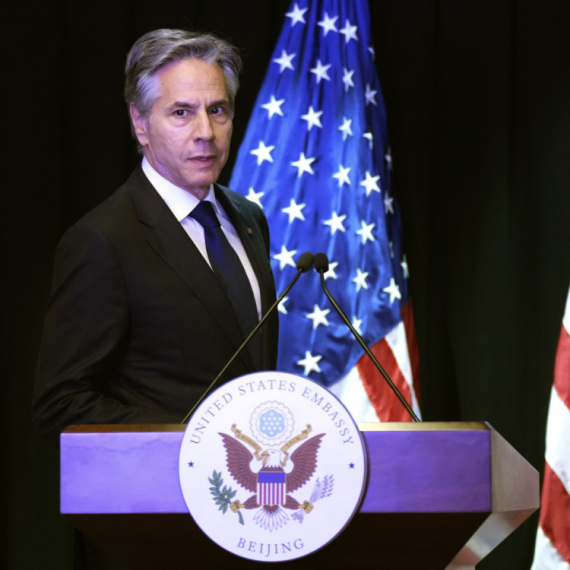




















Komentari 0